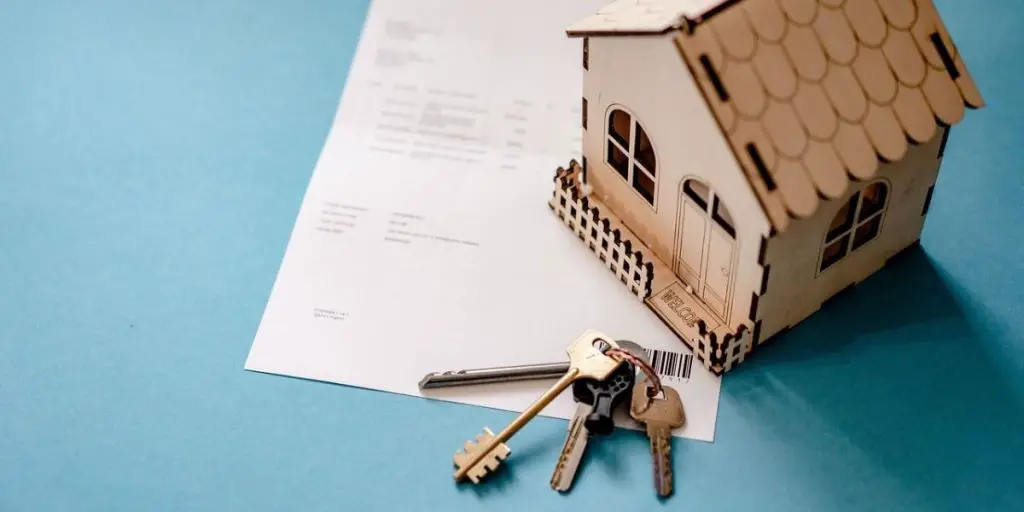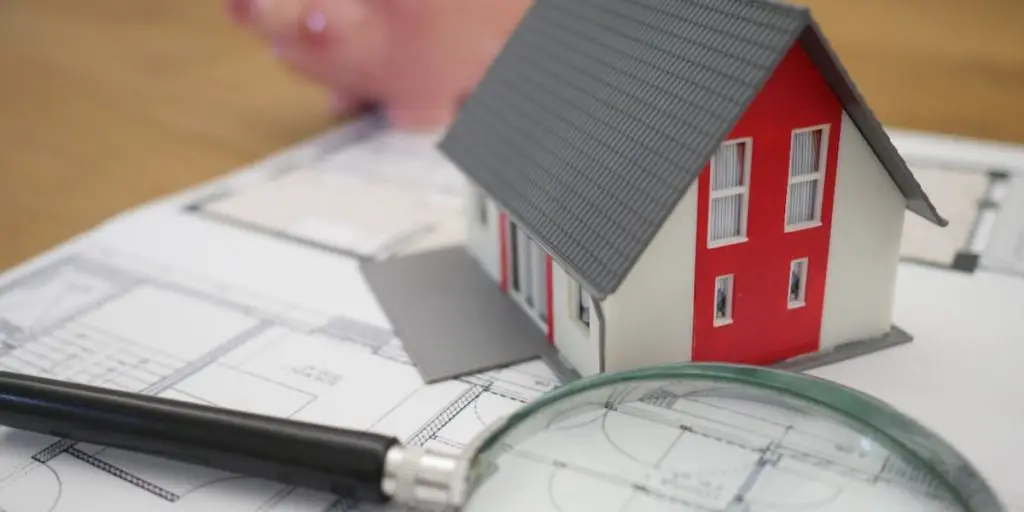Are you dreaming of financial freedom? Believe it or not, property investment could be the key to unlocking your dreams. Investing in UK property is a popular choice for many investors – and it can be extremely lucrative too. But how do you get started?
Here are some steps to get started with investing in property:
1. Determine your budget and financial goals
2. Research and analyse potential properties and locations
3. Secure financing or investment partners
4. Purchase the property and start managing it or hire a property management company
5. Continuously monitor and evaluate the property’s performance and make necessary adjustments. It’s also important to seek guidance from professionals such as estate agents, lawyers, and financial advisors.
In this article, we’ll take you through the basics of buying property for investment. First, let’s look at why property investing is so attractive.
It’s a tangible asset that can provide consistent rental income, as well as capital growth over time. It also offers tax advantages like depreciation and capital gains exemptions. Plus it’s relatively low-risk compared to other types of investments, such as stocks and shares.
Finally, it’s important to understand all the costs associated with investing in property – from legal fees and mortgage payments to stamp duty and surveyor fees. With this knowledge in hand, you’ll be ready to start your journey into the world of UK property investment! Read on for more tips on how to buy property for investment…

What is an Investment Property?
Investment property is real estate bought with the intention of making a profit or securing long-term financial gains. It’s also called rental property, and it refers to a purchase that isn’t your primary residence. Investment properties can come in all shapes and sizes, from single-family homes to multi-unit buildings and commercial spaces.
The advantages of investing in property are numerous. You can generate income through rent payments, build equity over time, benefit from tax advantages, and potentially earn capital gains when you sell the investment. Plus, you can use leverage to increase returns on your investments.
It’s important to understand the risks associated with investing in property too — market conditions can change quickly and there may be unexpected maintenance costs or tenant issues. That’s why doing thorough research and financial planning is essential when you’re considering an investment property purchase.
The Key to Successful Investment: Financial Planning
“It takes money to make money” – a phrase that is so often repeated when discussing property investment. But, it’s not just about having money in the bank; financial planning and smart investment strategies are just as important as having money saved. When embarking on a journey of property investment, it’s essential to create a portfolio management plan. This will include researching and analysing potential properties, setting realistic goals, working out your budget and understanding the legalities of property investment.
Firstly, you should take some time to research the market and potential properties you may want to invest in. Understand what kind of returns you can expect from the area; things such as rental yields or capital growth rates should be considered when making an informed decision.
Secondly, work out your budget and how much you can realistically afford to spend on an investment property – this is where having knowledge of finance comes in handy.
Finally, ensure you understand all the legal requirements such as taxes and landlord regulations that come with being a property investor in order to minimise risk.
Having sound financial planning is crucial before investing in any property; without this knowledge, investors could find themselves facing costly mistakes or unexpected costs further down the line. Researching potential properties is the next step when looking into property investment – but more on that later!

Researching Potential Properties
Researching potential properties is the first step to successful property investment. It’s important to understand the local market and do thorough research on any potential investments. Doing this will help you gain an overview of the market, identify trends and opportunities, and determine whether a property is a good fit for your goals.
Start by researching prospective markets and compiling data on property performance in each area. This could include details such as population growth, average house prices, rental yields, capital growth potential, crime rates and local amenities. You should also analyse any comparable properties that have been sold recently in the area to get an idea of what price you might be able to expect from your own investment.
Make sure you don’t just look at top-level figures; it’s important to visit each potential investment yourself and assess it for any structural or cosmetic issues that could affect its value or rental appeal down the line. Once you have done your due diligence – both online and in person – you can more confidently make decisions about which properties might offer a worthwhile return on investment.
Armed with all this information, you can now move onto assessing different types of investment properties.
Types of Investment Properties
When it comes to investing in property, there are a few key types you should consider. From commercial properties to vacation rentals and everything in between, there’s something for everyone.
The most common type of investment property is a rental property. This includes single-family homes, multi-family homes, and even fixer-uppers that can be converted into rental units. Rental properties can provide steady income and long-term capital appreciation if managed well.
For those looking for a shorter-term commitment, vacation rental properties may be the right choice. Vacation rentals are typically furnished and situated in desirable locations that attract tourists looking for short-term accommodations. This type of investment offers the potential for higher returns but also carries more risks due to seasonality changes.
Finally, commercial properties are another option to consider when investing in property. These are typically larger investments with long leases and offer the potential for higher yields than residential properties. However, they also come with additional complexities such as county laws and tenant management that need to be taken into account before investing.
When it comes to financing options, there are several routes you can take depending on your individual needs and goals…
Financing Options
It is widely accepted that purchasing a property for investment purposes is a wise financial decision that can provide many benefits over the long term. However, it is also true that there are numerous financing options to consider when making such an investment. Here are some of the financing options available:
- Mortgage Rates: It is important to research competitive mortgage rates and loan terms before proceeding with a purchase. Refinancing options may also be available depending on your credit score and down payment amount.
- Credit Score: Before you start looking at properties, it’s essential to check your credit score and make sure it meets lender requirements. A higher credit score will usually get you better interest rates and loan terms.
- Deposit: Many lenders require a certain percentage of the purchase price as a deposit before they will approve financing for the purchase of an investment property. It’s important to have this money saved up in advance or have other means of obtaining it quickly if necessary.
- Loan Terms: It’s also important to research loan terms when purchasing a property for investment purposes, as different lenders may offer different repayment periods and other features that can affect your overall return on investment.
Being aware of these financing options is vital when considering investing in property, as having the right information can help you make an informed decision about which option best fits your needs and goals. As always, it pays to do your research before making any kind of financial commitment! With all the details sorted out, it’s now time to consider location considerations for potential investments in real estate.
Location Considerations
When it comes to investing in property, location selection is key. When considering the geographic area for your investment, it’s important to do some research into the local housing and rental markets, as well as the amenities in the neighborhood. This will help you determine whether a particular location is suitable for your investment goals.
Before you commit to any area, look at similar properties nearby and get an idea of what type of rent you can expect from a property in that region. Consider the tourism industry too – if there’s a high demand for accommodation in the area during peak periods then this could be beneficial for your returns. Additionally, take note of any public transportation or other amenities that may be available nearby which could make your property more attractive to prospective tenants.
Having done your research, you should have a clearer idea of where to invest and how much you can expect to make from renting out your property. Now all that’s left is to find the right investment opportunity and make sure it fits within your budget! With careful consideration of the local market conditions, you can ensure you are making a sound decision when choosing where to purchase a property for investment purposes.
Making sure that all factors are considered when selecting an area will enable you to maximize returns on your investment and capitalise on tax benefits down the line.
Tax Benefits
Investing in property can be financially rewarding and comes with some tax benefits. Property tax benefits include investment tax credits, capital gains taxes, property depreciation, and real estate taxes. Investors should take the time to understand how these deductions can help their bottom line.
For example, capital gains taxes are reduced when you sell an investment property. This is because your cost basis is generally lower than market value. Property depreciation allows you to write off the cost of improvements to the property over time. This can be a great incentive for those looking to add value to their investments while reducing their taxable income. Real estate taxes paid on investment properties may also be deductible depending on your individual circumstances.
Tax benefits can have a significant impact on the profitability of an investment property. Understanding these deductions will put you in a better position to maximise your returns and make wise decisions when it comes to investing in real estate. With this knowledge, investors can confidently move forward with inspections and appraisals knowing that they’re making smart financial decisions along the way.
Inspections and Valuations
Property inspections are an essential part of the home buying process. As a UK property investor, having a thorough inspection and valuation done on any investment is an absolute must. A property inspection will help you identify potential issues before you commit to making a purchase, while a valuation will provide a comprehensive understanding of the home’s value.
Before you hire your inspector or arrange for a valuation, it’s important to make sure that the person or firm you’re working with is qualified and experienced in their field. You can also create your own inspection checklist if you want to be extra thorough. Property inspection costs vary depending on the size and complexity of the home, but generally range from £200-£400. Valuation cost can also vary depending on factors such as location and type of property but typically cost around £150-£400.
It’s also important to remember that inspections and valuations are only one aspect of investing in real estate. Once they’re completed, it’s time to move on to negotiating the purchase price. This can be tricky but with preparation and research into current market conditions, you’ll have all the information needed to make a sound decision when it comes time to make an offer on your investment property.

Negotiating the Purchase Price
Negotiating the purchase price of a property is a key factor in making a successful investment. As an investor, you’ll want to get the best deal possible. Pointing out minor details in the property can be a great way to lower the asking price. Whether it’s an outdated kitchen or a small crack in the wall, these details can be used to your benefit when negotiating with the seller.
Another great tactic is to offer slightly less than the asking price. This shows that you’re serious about securing the property and can often lead to further negotiations. It’s also important to remember that sellers may be open to deals at different times throughout the negotiation process, so it’s worth revisiting offers you have made if they have been declined early on.
When it comes time to close the deal, being organised and prepared will help ensure a smooth transaction for both parties involved. Researching local property laws and having all documents ready for signing will help make sure everything runs smoothly on closing day.
Closing The Deal
Once the purchase price is negotiated, it’s time to move on to closing the deal. As a UK property investor, this is an important step in the process as it solidifies your investment. It’s important to ensure that the closing process goes smoothly and that all necessary steps are taken.
Your estate agent can help you with this aspect of the transaction. They will be able to provide you with all of the necessary information regarding title insurance, completion costs, and due diligence. For example, they will make sure that all documents are completed accurately and that all fees are paid on time.
Additionally, your estate agent can help you understand more about the transfer of ownership and how to protect yourself from any potential legal issues down the road. By doing so, you can complete the purchase with peace of mind knowing that you have taken every step necessary for a successful property investment.
At this point, all that’s left to do is sign off on the paperwork – and welcome your new property into your portfolio!
Frequently Asked Questions
What Are The Long-Term Benefits Of Investing In Property?
Investing in property is a great way to secure long-term financial returns and reap the associated benefits. The long-term benefits of investing in property are numerous, including financial returns, tax breaks, and potential increases in market value. As a UK property investor, I understand the importance of taking advantage of these benefits to ensure my investments provide excellent ROI.
When you invest in an investment property, you have the potential to receive regular rental income which can be used as a source of passive income or reinvested into other projects. Additionally, this rental income may be subject to certain tax breaks depending on the region where the property is located. This means that not only can you benefit from regular financial returns but also from certain tax advantages too.
Furthermore, if you decide to sell your investment property at a later date there is a strong possibility that it will have increased in market value due to factors such as inflation and local demand. Being able to capitalise on this increase in value can result in significant long-term gains for investors who are savvy enough to spot promising opportunities.
In summary, investing in property provides multiple long-term benefits by allowing investors access to regular financial returns, potential tax advantages, and increased market value over time. It’s no wonder many people across the UK are turning their attention towards investment properties as an effective way of securing their financial future.
How Do I Know If A Property Is A Good Investment?
Investing in property can be a great long-term investment, however knowing if a property is a good investment takes careful analysis. Property investors must take into consideration market trends, financial return analysis, capital growth projections and other criteria when making the decision to invest in any given property.
When considering a property for investment, it’s important to have an understanding of the current market trends. Keeping up to date with industry news and local developments will help you stay ahead of the game when investing in property. Taking into account economic performance and population growth can help understand future capital growth projections.
When conducting a financial return analysis on a potential investment property, consider both positive and negative cash flow scenarios. As an investor, you need to calculate your expected returns taking into account rental income, expenses such as mortgage costs, taxes, and repairs and maintenance costs. Furthermore, research into neighbourhood data can give further insight into a potential investment’s prospects for long-term success or failure.
Once armed with this information it’s time to make the decision whether or not to purchase the property based on your own personal criteria for an ideal investment property – understanding that no single indicator will make or break a potential investment opportunity. With careful analysis of available options, investors can use their knowledge of property market trends and financial return analysis combined with their own personal criteria and goals to make sound decisions about which properties are worth investing in for long-term gains.

What Should I Look For When Evaluating Potential Properties?
When evaluating potential properties for investment, there are a number of important factors to consider. From the features of the property itself to the financing options you have available, it’s essential to look at all aspects before making an informed decision.
When assessing property features, it’s important to look at what is included with the purchase. For example, things like square footage and the quality of fixtures and fittings can play an important role in determining future rental or resale value. Additionally, any improvements that need to be made should be taken into account when assessing costs.
Investment criteria is also something to take into consideration when looking at potential properties. Things like rental yields, projected capital growth and estimated return on investment are all key points to consider before taking the plunge. Similarly, when looking at financing options, you’ll want to make sure that your investment will offer an adequate return on your outlay. Also, remember that there may be additional costs such as property taxes and fees associated with the sale which should be factored into your assessment too.
Finally, location is another crucial factor when buying property for investment purposes. Make sure you research schools, transport links, local amenities and crime rates in the area before making a decision as these could have an effect on future rental demand or resale value down the line. Doing your due diligence beforehand can save time and money in the long run so it’s worth putting in some extra effort upfront!
What Are The Risks Associated With Investing In Property?
Investing in property can be a great way to make money, but it also carries risks that you should be aware of. Property investment is certainly not without its risks and there are several mistakes that you could make. As a UK property investor, it’s important to understand the potential risks associated with investing in property so you can make an informed decision about whether or not it’s right for you.
One of the biggest property investment risks is market fluctuations. Prices can fall as well as rise, so if you’re investing for the long term, it’s important to understand how market conditions could affect your investments. In addition, you should look at the local economy when making any real estate investment decisions; if a particular area is experiencing significant changes in population or employment rates, this could have an impact on your investments.
Another risk associated with investing in property is legal and financial issues. You need to do your research before committing to any purchase; there may be hidden fees or taxes that could reduce your return on investment, while some properties may have restrictions on how they can be used or developed which could affect their resale value in the future. It’s also important to ensure that any contracts are legally binding and up-to-date; failure to do so could result in costly disputes further down the line.
Before investing in property, take some time to thoroughly evaluate all aspects of the investment and consider all possible risks. Research the area and find out what sort of returns other investors have made; speak to experts who can provide advice and guidance on any potential pitfalls; and review all documents carefully so that you understand exactly what you’re getting into before signing anything. With careful planning and due diligence, investing in property can be an extremely rewarding experience – just make sure that you’re aware of all the risks involved first!

How Can I Get The Best Deal On A Property Purchase?
Buying a property is an exciting venture, but it’s important to make sure you get the best deal possible. When looking for advice on how to negotiate a property purchase, there are a few key things to consider. Firstly, it’s essential to do your research and look for investment property advice from experienced investors who have already been through the process. It can also be beneficial to use online resources such as blogs, forums or YouTube videos that offer buying property tips.
Once you’ve done your research, it’s time to start looking for potential properties. Make sure you thoroughly inspect each one before committing – this means not just visiting the property itself, but also researching any local amenities or issues that may impact market value. Once you’ve found a suitable property and agreed on a price with the seller, it’s time to move forward with the purchase.
The next step is where having the right knowledge comes in handy; negotiating with the seller or estate agent can make all the difference when it comes to getting the best deal on a property purchase. Having an understanding of what buyers are likely willing to pay will help you decide how much room there is for negotiation and how much money you can save on fees or add-ons such as fixtures and fittings. It’s also important to remember that patience is key – if you don’t get exactly what you want right away don’t be too hasty in making compromises!
By researching investment property advice and using buying tips while negotiating with sellers, you can increase your chances of getting the best deal possible when purchasing a property. By taking these steps ahead of time and being aware of potential risks associated with investing in property, you can ensure that your investment pays off in the long run.
Conclusion
Property investment can be a great way to generate long-term wealth, but it’s important to do your research and understand the risks involved. You need to evaluate each potential property carefully and make sure you get the best deal possible.
The key is to take your time and ask yourself the right questions. Have you considered all of the potential risks? Are you really getting a good deal? Can this property give you the return on investment that you’re looking for?
These are all questions that must be answered before investing in any property. By doing your due diligence and taking your time, you can make an informed decision and find an investment that meets your needs. So why not take this opportunity to invest in something with real potential – what have you got to lose?
- Rent-to-Rent Schemes: Hidden Dangers Lurk - July 6, 2024
- How to Sell Your House Fast in Kent - July 5, 2024
- 7 Tips to Sell Your House Fast - July 4, 2024


